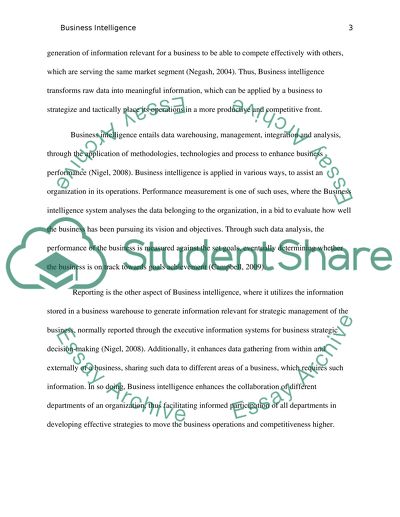IT - Business Intelligence Research Paper Example | Topics and Well Written Essays - 750 words. Retrieved from https://studentshare.org/information-technology/1452136-business-intelligence
IT - Business Intelligence Research Paper Example | Topics and Well Written Essays - 750 Words. https://studentshare.org/information-technology/1452136-business-intelligence.


